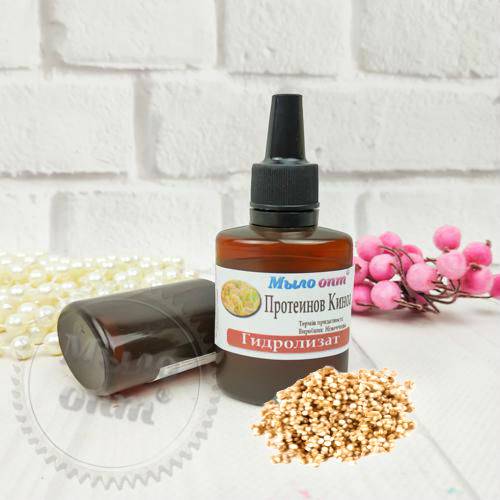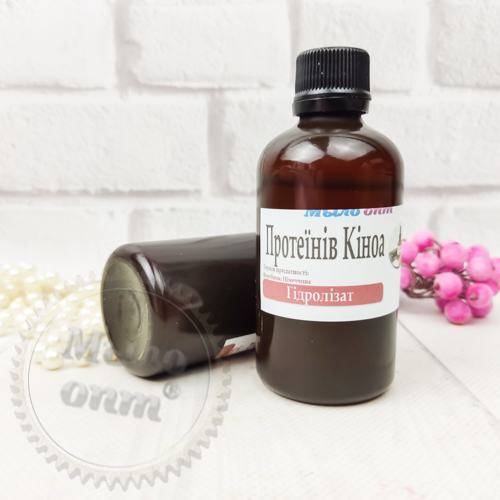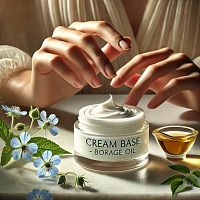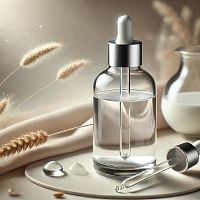-
 Absolutes
Absolutes
-
 Active Complexes
Active Complexes
-
 Actives and Peptides for Cosmetics
Actives and Peptides for Cosmetics
-
 Amino Acids
Amino Acids
-
 Food Flavorings
Food Flavorings
-
 Ayurveda
Ayurveda
-
 Vitamins
Vitamins
-
 Gelling Agents and Thickeners
Gelling Agents and Thickeners
-
 Hydrosols and Floral Waters
Hydrosols and Floral Waters
-
 Hydrolyzed Proteins
Hydrolyzed Proteins
-
 Fragrant and aromatic substances
Fragrant and aromatic substances
-
 Acids, Salts, Alcohols, and Alkalis
Acids, Salts, Alcohols, and Alkalis
-
 Preservatives and Antioxidants
Preservatives and Antioxidants
-
 Cosmetic Raw Materials
Cosmetic Raw Materials
-
 Dyes, Pearlescents, and Glitters
Dyes, Pearlescents, and Glitters
-
 Face Masks, Scrubs, and Dried Flowers
Face Masks, Scrubs, and Dried Flowers
-
 Oils, batters, macerates, oil mixtures
Oils, batters, macerates, oil mixtures
-
 Candle Supplies
Candle Supplies
-
 Melt and Pour Soap Bases
Melt and Pour Soap Bases
-
 Base for cosmetics, cream, serum, shampoo
Base for cosmetics, cream, serum, shampoo
-
 Fragrance Oils
Fragrance Oils
-
 Surfactants
Surfactants
-
 Peelings for Skin
Peelings for Skin
-
 Herbal Powders and Plant
Herbal Powders and Plant
-
 Silicones and Conditioning Surfactants for Hair
Silicones and Conditioning Surfactants for Hair
-
 Raw materials for dietary supplements
Raw materials for dietary supplements
-
 Packaging for Cosmetics and Perfumes
Packaging for Cosmetics and Perfumes
-
 Molds, Packaging, Tools
Molds, Packaging, Tools
-
 Organic Extracts
Organic Extracts
-
 Emollients for Cosmetics
Emollients for Cosmetics
-
 Emulsifiers
Emulsifiers
-
 Essential Oils
Essential Oils
Quinoa Protein Hydrolyzate (QPH): A Promising Ingredient for Modern Cosmetics
Introduction
In the ever-evolving realm of cosmetics, the quest for innovative and efficacious ingredients that cater to diverse consumer demands is relentless. Quinoa protein hydrolyzate (QPH), derived from the highly nutritious quinoa seed, has emerged as a captivating prospect for formulators seeking to enhance the functional and aesthetic properties of their cosmetic creations.
What is QPH?
QPH is a water-soluble derivative of quinoa protein obtained through a process called enzymatic hydrolysis. This process breaks down the complex protein molecules into smaller peptides and amino acids, rendering them readily bioavailable and easily absorbed by the skin.
Chemical Composition and Properties
QPH boasts a unique amino acid profile, rich in essential and non-essential amino acids, including:
- Arginine
- Histidine
- Isoleucine
- Leucine
- Lysine
- Methionine
- Phenylalanine
- Threonine
- Tryptophan
- Valine
These amino acids contribute to the following properties of QPH:
- High water-binding capacity: QPH effectively attracts and retains moisture, a crucial attribute for maintaining skin hydration and promoting a plump, supple appearance.
- Film-forming ability: QPH forms a thin, protective layer on the skin's surface, aiding in the prevention of transepidermal water loss (TEWL) and shielding the skin from environmental aggressors.
- Biocompatibility: QPH exhibits a high degree of compatibility with the skin, minimizing the risk of irritation or allergic reactions.
- Biodegradability: QPH readily decomposes under natural conditions, making it an environmentally friendly choice for eco-conscious consumers.
Potential Cosmetic Benefits of QPH
Emerging research suggests that QPH possesses a multitude of potential benefits for use in various cosmetic applications:
- Skin Hydration and Moisture Retention: The hygroscopic nature of QPH enables it to attract and retain moisture in the skin, contributing to a more hydrated, smooth, and supple appearance. This can be particularly beneficial for individuals with dry or dehydrated skin.
- Enhanced Skin Barrier Function: The film-forming properties of QPH may aid in strengthening the skin's barrier, protecting it from external irritants, environmental damage, and excessive TEWL.
- Anti-Aging Properties: QPH's amino acid profile, particularly the presence of lysine, may contribute to collagen synthesis, potentially promoting skin elasticity and reducing the appearance of fine lines and wrinkles.
- Wound Healing: Studies suggest that QPH might accelerate the wound healing process by stimulating cell proliferation and migration.
- Hair Care: The film-forming and conditioning properties of QPH could potentially enhance hair manageability, reduce frizz, and improve shine.
Safety Considerations
While QPH generally exhibits a favorable safety profile, it's crucial to conduct thorough patch testing before incorporating it into cosmetic formulations. As with any new ingredient, consulting with a qualified dermatologist or cosmetic scientist is recommended to ensure its suitability for individual skin types and sensitivities.
Applications in Cosmetic Formulations
The potential applications of QPH in cosmetics are extensive, encompassing a variety of product categories:
- Moisturizers and Lotions: QPH's ability to attract and retain moisture makes it a valuable addition to moisturizers and lotions, particularly those designed for dry or dehydrated skin.
- Serums and Anti-Aging Treatments: The presence of amino acids with potential anti-aging properties suggests that QPH could be incorporated into serums and anti-aging treatments aimed at improving skin elasticity and reducing the appearance of wrinkles.
- Hair Care Products: QPH's film-forming and conditioning properties could be beneficial in shampoos, conditioners, and styling products to enhance hair manageability, reduce frizz, and improve shine.
- Wound Healing Products: Further research is needed to fully evaluate QPH's potential in wound healing applications; however, its ability to stimulate cell proliferation warrants further investigation.
Recommended Usage Rates
The optimal usage rate of QPH in cosmetic formulations can vary depending on the desired outcome and the specific formulation. It's generally recommended to consult with a qualified cosmetic chemist or dermatologist to determine the appropriate concentration for your application.
"And also go to the Blog from Мыло Опт, where we share useful information about creating the right natural cosmetics
| INCI | Quinoa Protein Hydrolyzed | |
| pH | 4.0-7.0 | |
| Other | ||
| Application | Shampoos and conditioners, Balms, Masks, Hair sprays, Toners, Lotions, Creams, Skin serums, Decorative cosmetics | |
| Attention | Mandatory testing for sensitivity and allergic reaction, preliminary application to the bend of the elbow | |
| Color product | from yellow to amber | |
| Dosage | shampoos - 1-2%; balms - 1-3%; masks - 1-5%; hair sprays - 0.5-1.5%; tonics - 1-3%; lotions, creams - 1-5%; serums for skin - 2-10% | |
| Features | do not heat above 40 ° С, protein does not like this | |
| Name | Quinoa Protein Hydrolysate 25 ml | |
| Packaging | container for transportation | |
| Packing | 25 ml | |
| Purpose | Gives shine to hair. Contains the most complete "set" of amino acids than in other plant proteins of cereal plants. | |
| Solubility | in water | |
| View | liquid | |
| Valid until | 10.2026 | |
-
Date:8 DecemberAuthor:Грета, АугсбургReviews
Завжди отримую задоволення від покупок у цьому магазині.
Date:7 May 2025Author:Станислава, ПриштинаReviewsБольшое спасибо за отличную работу.

















 Add to cart
Add to cart Buy in 1 click
Buy in 1 click

 Add a review
Add a review To favorites
To favorites To compare
To compare
















